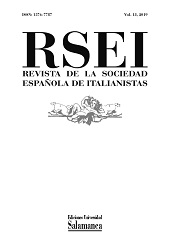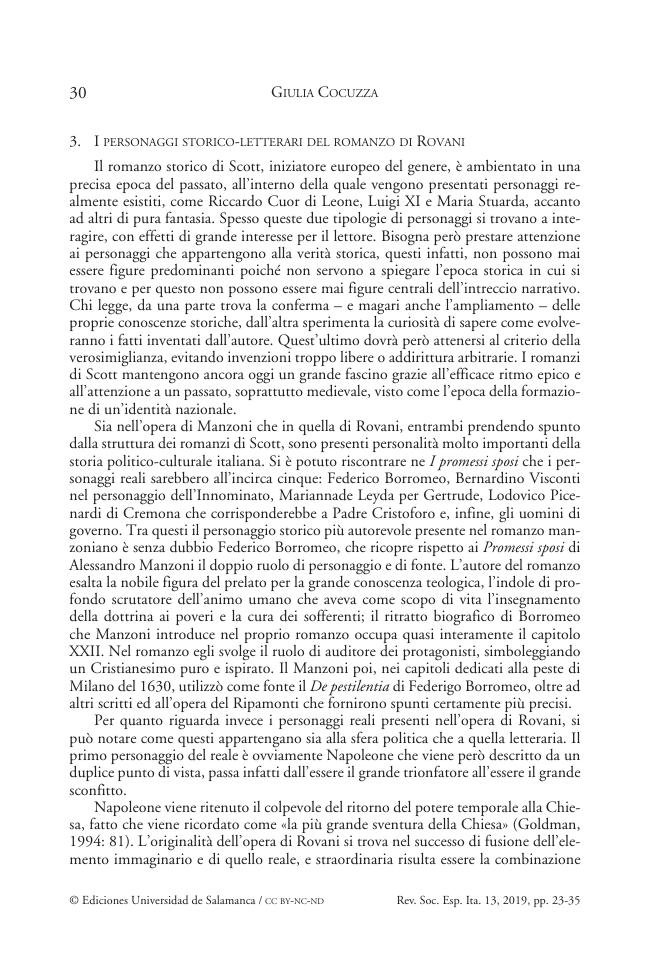La questione del romanzo storico italiano e i personaggi storico-letterari nei Cento anni di Giuseppe Rovani
P. 23-35
Nel XVIII secolo l'Italia non segue le tendenze letterarie europee e non eccelle nella pubblicazione di romanzi. A partire dall'Ottocento si assiste invece al fenomeno editoriale del sottogenere del romanzo storico che porterà gli intellettuali italiani, Manzoni per primo, ad abbandonare il canone aristotelico per dare un ruolo più rilevante alla storia all'interno del romanzo. Sulla scia di Manzoni viene strutturato l'ultimo romanzo storico dell'Ottocento italiano, Cento Anni di Giuseppe Rovani, nel quale la storia recente assume un nuovo valore, soprattutto attraverso l'utilizzo della vita e delle opere di personalità storico-letterarie, che divengono personaggi a tutti gli effetti. [Testo dell'editore]
In the 18th century, Italy did not follow European literary trends and did not excel in publishing novels. From the nineteenth century onwards, on the other hand, there was the publishing phenomenon of the subgenre of the historical novel that led Italian intellectuals, Manzoni for the first time, to abandon the Aristotelian canon to give a more important role to history within the novel. Following Manzoni's example was structured Cento Anni by Giuseppe Rovani, the last historical novel of the nineteenth century, in which recent history takes on a new value, especially through the use of the life and works of historical-literary personalities, who become characters in every aspect. [Publisher's text]
-
Artikel aus derselben Ausgabe (einzeln erhältlich)
-
Informationen



